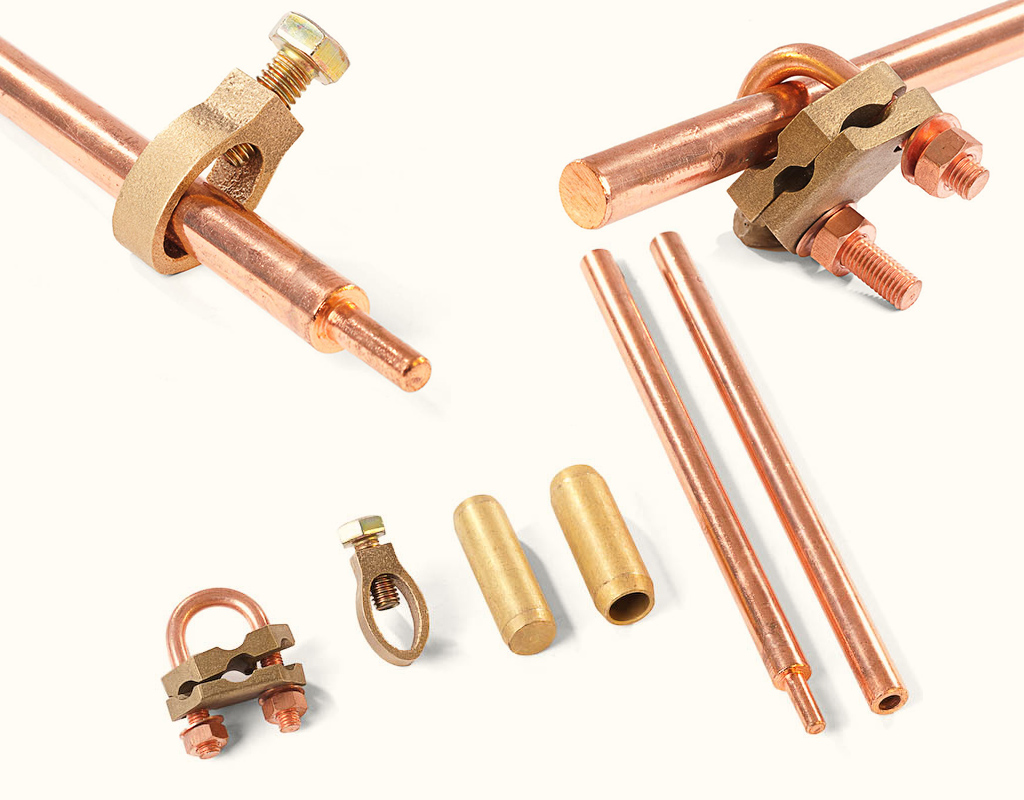Earthing
A Reliable Grounding Solution
Earthing, also known as grounding, is a crucial safety measure in electrical systems. It involves connecting conductive parts of equipment to the earth, providing a low-resistance path for electrical current to flow in case of a fault. This helps prevent electrical shocks and equipment damage.
Why Brass?
Brass is a popular choice for earthing applications due to its excellent electrical conductivity and corrosion resistance. It offers several advantages over other materials like copper:
Cost-effectiveness: Brass is generally more affordable than copper, making it a budget-friendly option for earthing systems.
Corrosion resistance: Brass is highly resistant to corrosion, ensuring long-lasting performance even in harsh environments.
Good conductivity: Brass has excellent electrical conductivity, allowing for efficient current flow to the ground.
Ease of workability: Brass is easy to shape and form, making it suitable for various earthing applications.
Common Uses of Brass Earthing
Brass is widely used in various earthing applications, including:
Earthing electrodes: Brass rods or plates are commonly used as earthing electrodes to provide a low-resistance path to the ground.
Earthing strips and wires: Brass strips and wires are used to connect equipment and structures to the earthing electrode.
Earthing clamps and connectors: Brass clamps and connectors are used to secure earthing wires and cables to conductive surfaces.
Neutral earthing: Brass components are used in neutral earthing systems to ensure safety and proper operation of electrical systems.

